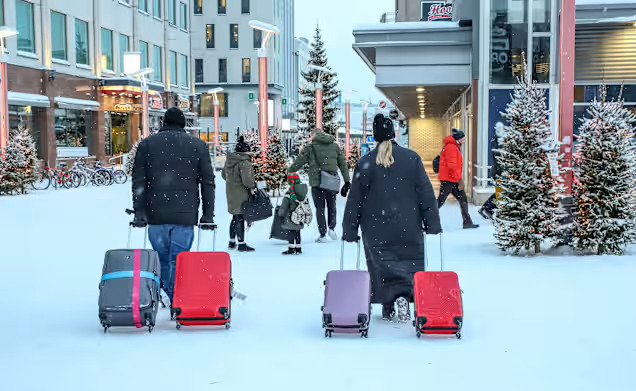Labour unions in Finland say that some tourism companies in Lapland are violating workers’ rights as the winter tourism season begins. The Service Union United (PAM) and the Finnish Hospitality Association (MaRa) report that they have received several complaints from seasonal migrant workers who say they were misled about their job conditions. The issue is concerning because many workers travel to Lapland every winter for temporary jobs in hotels, restaurants, and tourism activities.
According to the unions, some companies are not respecting labour laws or the collective agreements intended to protect workers. The complaints suggest that the workers were promised certain wages and working hours but arrived to find something different. These reports have grown in number as more companies enter the tourism sector in northern Finland.
Union officials say that many workers were required to attend unpaid training sessions that lasted from days to even weeks. In some cases, workers say they were asked to pay for the training themselves. Henna-Kaisa Turpeinen, a regional manager with the PAM union, explained that this practice is illegal and exploitative.
Why are these violations happening?
Some companies are operating without joining official employer organisations.
By avoiding membership in organisations that follow labour rules, these companies are able to ignore collective agreements and avoid responsibility to workers.
The Finnish Hospitality Association notes that while there are hundreds of tourism companies in Lapland, many do not belong to employers’ organisations. This means they are not monitored and do not have to comply with negotiated working standards. They can freely set conditions that workers may not realize are unfair or illegal.
Union representatives say that companies that avoid joining official employer groups are deliberately choosing not to follow legal standards. They argue that these businesses profit by cutting labour costs, even if it harms workers who depend on these jobs.
Seasonal migrant workers are especially vulnerable because they may not know the local labour laws or how to report abuse. Many come to Lapland from other parts of Europe and Asia during the winter season, hoping to earn money in a region known for tourism tied to snow activities and the “Christmas village” experience.
Labour unions are urging workers to report mistreatment and are calling for stronger government oversight in the tourism sector. They say the growth of winter tourism should not come at the cost of fair working conditions. Workers, they add, deserve both respect and legal protection while helping support one of Finland’s most famous travel destinations.

